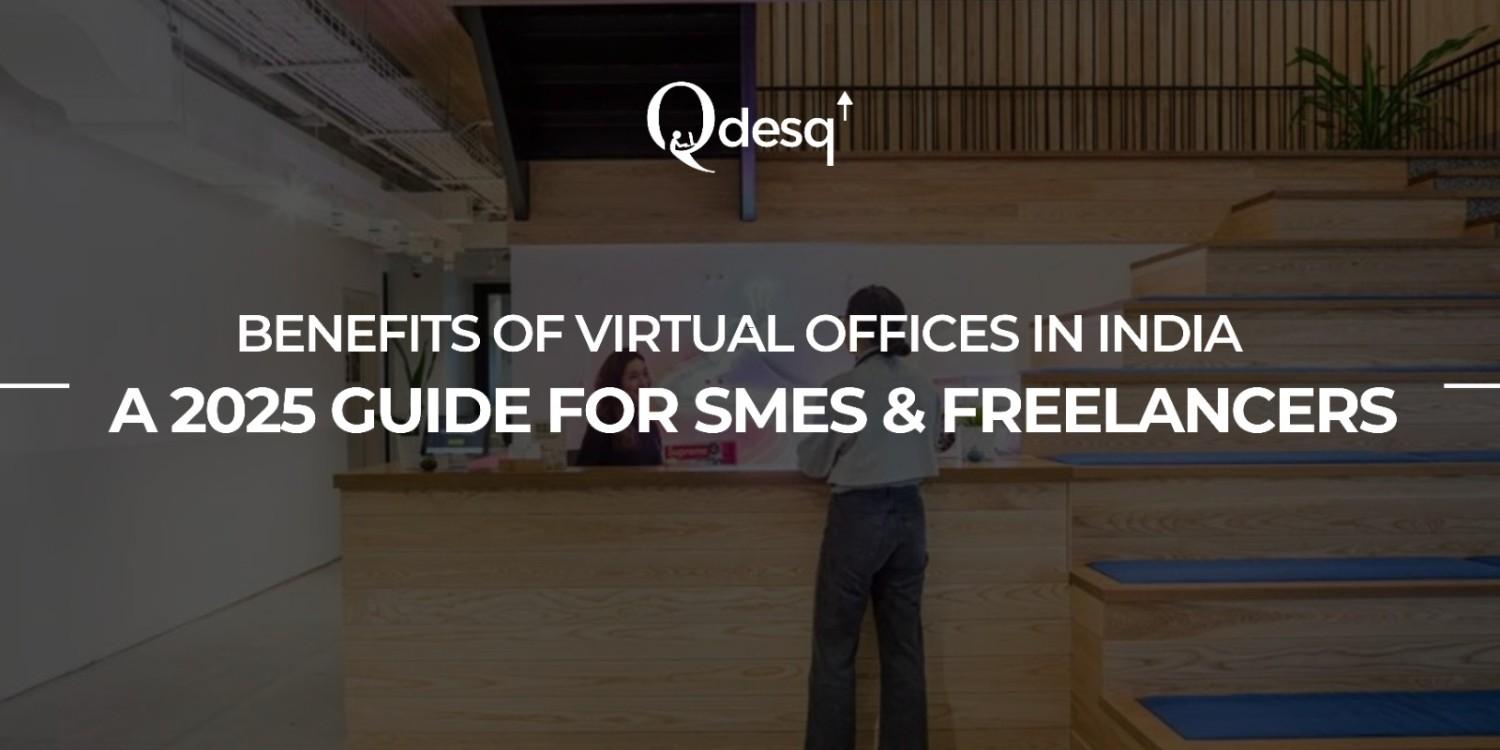In 2025, Indian businesses aren’t just going lean but strategic. From bootstrapped startups in Bengaluru’s HSR Layout to independent consultants in Delhi’s Connaught Place, entrepreneurs are actively rewriting how companies begin, scale, and operate. At the heart of this evolution lies a critical enabler: the virtual office.
A virtual office in India is no longer an interim arrangement. It’s the new foundation of credibility, compliance, and cost efficiency—especially for startups, SMEs, and location-agnostic professionals. This guide dives deep into how virtual offices transform business infrastructure across India’s major micro markets and why they are no longer optional in 2025.
1. Virtual Offices as Legal Infrastructure for GST & MCA
One of the core structural challenges every business faces at inception is addressing the legitimacy of registrations. GST registration and company incorporation under the Ministry of Corporate Affairs (MCA) require a recognised commercial address.
Virtual offices in markets like Mumbai’s Bandra Kurla Complex (BKC), Gurgaon’s Cyber Hub, or Bengaluru’s Indiranagar provide all the statutory documentation required:
- Rent Agreement
- NOC from the property owner
- Utility bill (electricity or water)
This makes it possible for digital-first businesses or freelancers operating from home to remain fully compliant without investing in traditional office leases. Multi-state operators increasingly use virtual offices in Tier-1 cities to secure GST numbers across state jurisdictions—crucial for PAN-India invoicing and tax compliance.
2. Establishing Commercial Legitimacy, Without the Commercial Lease
Your registered business address is your first market positioning indicator. A freelancer working out of Jaipur can now present a virtual office in Delhi’s Connaught Place, instantly elevating perceived legitimacy.
This matters to:
- Clients who assess vendor professionalism before awarding contracts
- Banks and NBFCs validating business loans
- Investors conducting due diligence on early-stage ventures
Providers in cities like Chennai (Teynampet) or Hyderabad (Hitech City) offer location-based branding that mirrors enterprise setups—without requiring you to hire admin staff, pay property taxes, or manage space operations.
3. The New Playbook for Geographic Expansion
Expanding into new markets used to require CAPEX: leasing real estate, setting up HR, and managing infrastructure. Virtual offices eliminate that need entirely.
A D2C brand based in Mumbai can now open a virtual office in Bengaluru and register for GST in Karnataka within 7–10 working days. This enables faster entry into new geographies, with:
- Legal presence to bid for local contracts
- Localised invoicing for regional clients
- State-specific compliance (Shop & Establishment registration, PF/ESIC jurisdiction, etc.)
This model is now core to startups scaling across Delhi NCR, Pune, Ahmedabad, and Kochi, without having to relocate teams.
4. A Scalable Cost Centre in an Unpredictable Market
India’s SME sector is navigating volatile rent escalations, hybrid work transitions, and unpredictable revenue cycles. In this context, a virtual office becomes a strategic cost-control lever. Instead of locking into long-term leases in Whitefield, Powai, or Sector 62 Noida, businesses can:
- Operate remote-first
- Use the virtual address for all regulatory and client-facing documentation
- Access meeting rooms only when needed
Most virtual office providers now bundle limited access to conference rooms and hot-desking, allowing for a hybrid engagement layer without overhead.
5. Virtual Front Office for Professionals & Consultants
The modern solo professional—CA, lawyer, architect, or tech consultant—often works out of client locations or remotely. But that doesn’t exempt them from needing a professional business identity.
Virtual offices provide:
- A dedicated receptionist who answers client calls in your brand name
- Mail and parcel handling with forwarding services
- A branded business address on your invoices and stationery
This can be the difference between landing a ₹10,000 retainer vs. a ₹5 lakh annual contract. Especially in professional services, image and credibility are critical—even when delivery is digital.
6. Risk Mitigation for Freelancers Transitioning to Formal Structures
Freelancers in India are now forming LLPs or private limited companies to access larger clients, international contracts, and legal protection. However, registering a company from a residential address creates audit risks and compliance headaches.
By using a virtual office in Chennai, Mumbai, or Kolkata, freelancers gain:
- A low-risk registered address
- Distinction between personal and professional assets
- Audit-ready infrastructure for TDS, GST, and ITR filings
This also supports startups moving from “bootstrapped hustle” to investor readiness—where formalisation becomes non-negotiable.
7. Due Diligence Friendly: Built for VC, B2B, and Government Contracts
Whether raising seed capital or onboarding a Fortune 500 client, your business infrastructure will be audited. A virtual office in Bengaluru’s CBD or Noida’s institutional zone ticks off many boxes during compliance checks:
- MCA-recognised registered address
- Properly dated and notarised documentation
- State-specific GST filings from a commercial zone
This is especially useful when bidding for tenders, raising equity, or entering global markets where operational transparency is a prerequisite.
8. On-Demand Workspace, When You Need It
The virtual office of 2025 is not just a postal box—it’s a flexible business environment. Providers now offer:
- Meeting room access for client pitches
- Cabins for temporary team collaboration
- Private work zones for tax audits, legal signings, or investor meetings
Locations like MG Road (Bengaluru) or Saket (Delhi) offer enterprise-grade facilities without the long-term viability of leasing. You pay for use, not for presence.
Final Words
What began as a workaround has now become a formal business layer. Virtual offices in India enable the next wave of SMEs, solopreneurs, and scale-stage startups to operate with agility, legitimacy, and control.
From GST registration in Mumbai to multi-city expansion from a single dashboard, the ecosystem has matured into a robust compliance enabler. For forward-thinking founders, this is not just about cutting costs—it’s about building future-ready infrastructure that reflects how work is truly being done in 2025.











